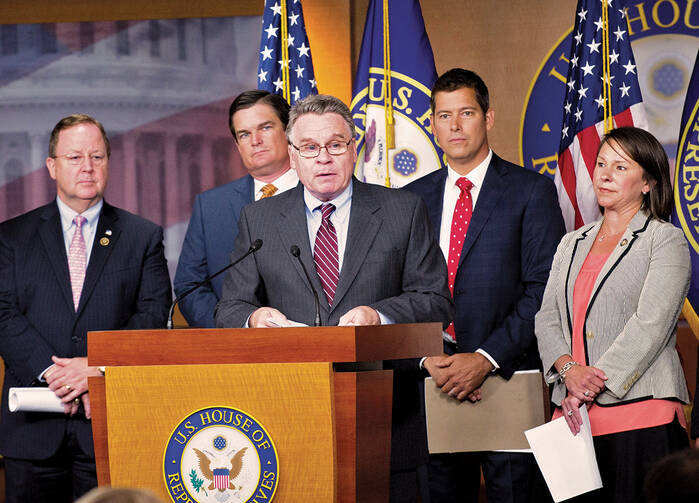Recriminations continued to accumulate after the release of a gruesome conversation about fetal remains, recorded by a hidden camera, went viral on the Internet, provoking a national uproar about Planned Parenthood procedures.
Produced by the Center for Medical Progress, the video captures Dr. Deborah Nucatola, senior director of medical services for the Planned Parenthood Federation of America, discussing ways abortion procedures can be altered to preserve fetal body parts requested for use in research. The video was shot at a business lunch in the Los Angeles area on July 25, 2014. As many Americans tried to wrap their heads around the idea of the existence of a robust trade in fetal organs and tissue derived from abortions, calls for congressional investigations were heard in Washington. A number of governors launched reviews of Planned Parenthood policies and procedures in their states to determine if local treatment of fetal remains was in keeping with federal law.
The state of American journalism—is it co-opted and cowed by liberal supporters of Planned Parenthood or drawn into too hasty conclusions from edited and out-of-context video?—also became part of the national dialogue. Meanwhile, reactions to the story by the American public split predictably across pro-life and pro-choice battlements.
As millions watched the video of Nucatola’s blasé discourse on abortion and organ recovery on YouTube in varying degrees of shock, Planned Parenthood’s president, Cecile Richards, initially remained defiant, denying any wrongdoing and challenging the integrity of the investigative team that released the edited video. But Nucatola’s bland recounting of abortion procedures in between sips of wine and bites of lunch salad had disturbed many viewers. In a statement posted on YouTube on July 16, Richards soon took a different tack. She apologized for Nucatola’s “tone and statements,” but emphasized that “the allegation that Planned Parenthood profits in any way from tissue donation is not true.”
As head of Planned Parenthood’s Medical Services Department, Nucatola has overseen medical practice at the federation’s locations since 2009. She also trains new Planned Parenthood abortion doctors and performs abortions herself at Planned Parenthood in Los Angeles on women who are up to 24 weeks pregnant, according to the Center for Medical Progress.
Surreptitiously videoed by C.M.P. investigators, she explained to two investigators posing as officers of a biotech firm how she adapted her procedure during an abortion with the aim of keeping fetal organs intact. “We’ve been very good at getting heart, lung, liver,” said Nucatola, “because we know that, so I’m not gonna crush that part, I’m gonna basically crush below, I’m gonna crush above, and I’m gonna see if I can get it all intact.”
“This public revelation about Planned Parenthood’s trafficking in human body parts obtained as a byproduct of abortion is long overdue,” said Vicki Evans, respect life coordinator for the Archdiocese of San Francisco. An undercover investigation of a Planned Parenthood affiliate in 2000 resulted in similar findings, Evans said. Congressional hearings to investigate trafficking in fetal organs and tissue by private companies were held, but nothing was done, she said.
According to a New York Times report on the controversy, companies that acquire fetal tissue and organs from Planned Parenthood can command high prices, “given the demand among researchers.”
During the recorded interview, Nucatola mentions one of those companies, StemExpress, a five-year-old business in Placerville, Calif. An archived Internet page suggests StemExpress pitches partnerships to abortion clinics as a way to generate revenue. “By partnering with StemExpress,” the company appeals to clinic directors, “not only are you offering a way for your clients to participate in the unique opportunity to facilitate life-saving research, but you will also be contributing to the fiscal growth of your own clinic.”








